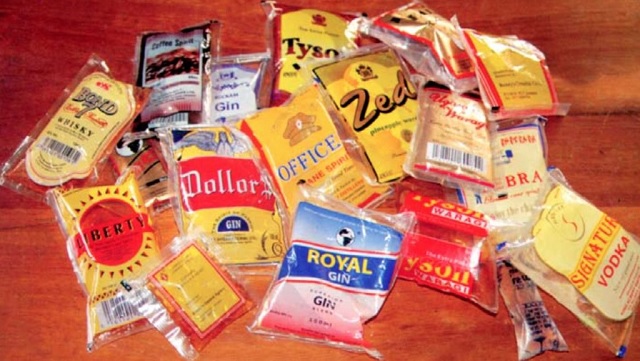In July, Uganda National Bureau of Standards seized 167 sachet-filling machines belonging to at least 37 alcohol-manufacturing companies.
“As a measure to enforce the government ban on alcohol sold in sachets, the Uganda National Bureau of Standards has closed over 167 sachet-filling machines belonging to at least 37 alcohol-manufacturing companies. The operation was conducted in Kampala, Wakiso, Mukono, Jinja and Mitiyana. UNBS staff also seized and confined packaging materials used in production of sachets,” UNBS said in a statement.
The operation was conducted in Kampala, Wakiso, Mukono, Jinja and Mityana. UNBS staff also seized and confined packaging materials used in the production of sachets.
However, the products are still sneaked onto the market, an illegal act that the UNBS Principle Certification Officer, Ronald Ahimibisibwe warned the manufacturers against.
Now UNBS has directed manufacturers of alcohol and spirits to recall all alcohol sachets and bottles below 200mls from the market.
The move is aimed at strengthening the ban on packaging and selling alcohol in sachets and bottles below 200mls.
In 2017, the government through a cabinet directive issued a ban of the aforementioned products, urging manufacturers to transit to packaging alcohol in plastic and glass bottles of 200mls minimum.
According to the UNBS Principal Surveillance Officer, Linda Kobere, the resolutions were made to have non-conformities off the market.
The revelations were made during UNBS engagement with alcohol and spirits manufacturers on Wednesday at the UNBS headquarters in Bweyogerere.
The meeting was aimed at ironing out issues hindering alcohol and spirits manufacturers’ compliance to the set standards.
The manufacturers raised concerns over non-compliant competitors dealing in crude waragi which is uncertified, and asked UNBS to take quick action against their activities.
The Acting Deputy Executive Director in charge of compliance, Andrew Othieno also clarified that local manufacturers importing raw materials, machinery and spare parts do not have to undergo PVoC, but ship the items to Uganda and obtain import clearance. This is aimed at supporting local manufacturers grow.
He further urged the manufacturers to get the Quality mark (Q) because it is mandatory and eases product penetration into the East African Market.





















